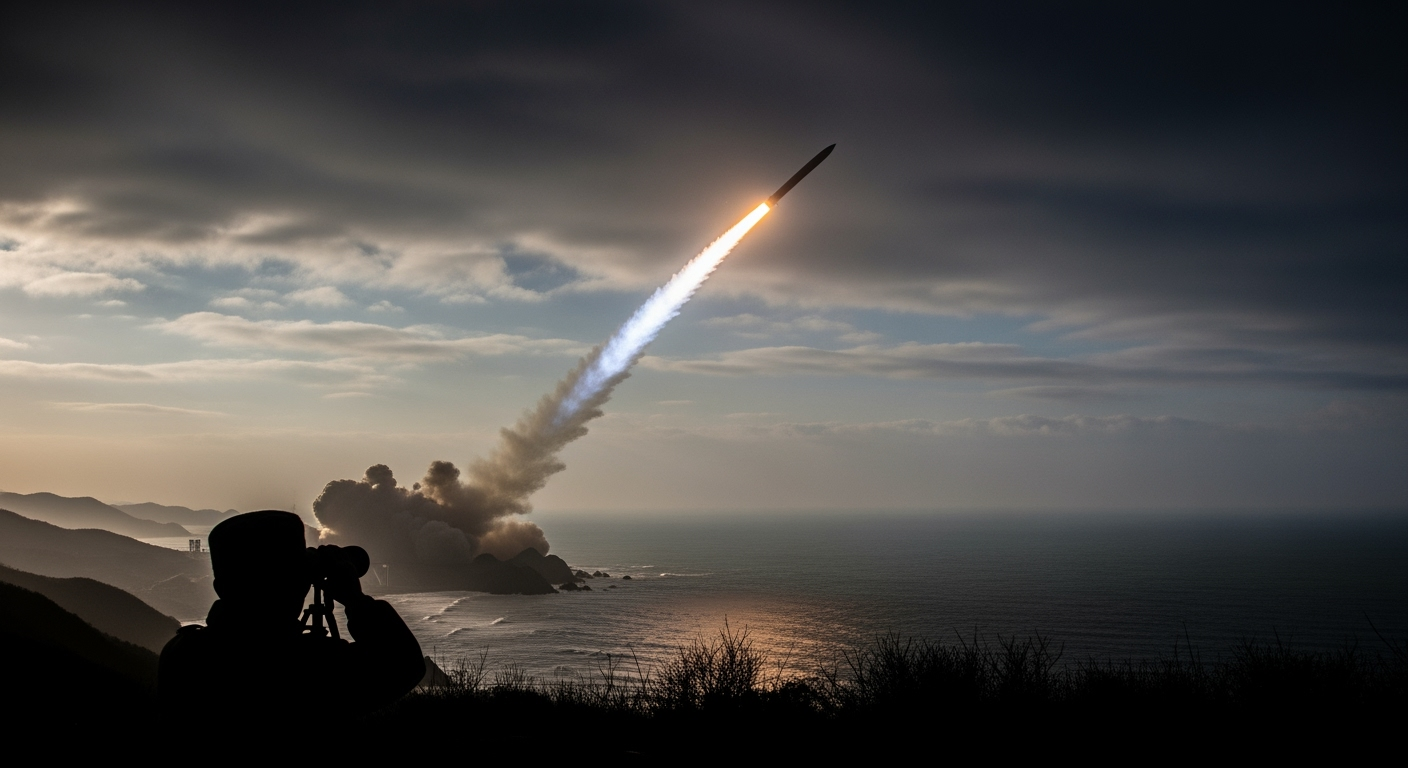Related Articles

North Korea Fires Ballistic Missile Eastward, Heightening Tensions Ahead of Asia-Pacific Summit




BRUSSELS, Belgium – Hopes for an immediate high-level peace summit in Budapest involving the United States and Russia to address the protracted conflict in Ukraine have been dashed, with reports confirming that a proposed meeting between U.S. President Donald Trump and Russian President Vladimir Putin is not in the "immediate future." This diplomatic setback unfolds against a backdrop of escalating internal tensions within the European Union, primarily fueled by Hungary's persistent divergence from the bloc's unified stance on Ukraine and Russia, leaving the EU precariously "on edge." The postponement underscores the complex and often contradictory diplomatic landscape surrounding the conflict, where external peace efforts intertwine with the EU's struggle to maintain a cohesive front.
The prospect of a Trump-Putin summit in Budapest emerged following a phone call between the two leaders, with the Hungarian capital suggested as a potential venue to discuss a cessation of hostilities in Ukraine. However, the anticipated meeting, which was intended to lay the groundwork for direct presidential talks, reportedly hit a snag after a preparatory discussion between U.S. Secretary of State Marco Rubio and Russian Foreign Minister Sergei Lavrov. Russian officials subsequently stated that a meeting had not even been planned, casting doubt on the entire proposal.
The mere suggestion of Budapest as a host city for such critical discussions raised eyebrows across Europe. Many EU member states and Ukraine expressed skepticism and concern regarding the choice of venue, given Hungary's increasingly pro-Moscow and anti-Kyiv foreign policy posture. Critics pointed out that a meeting on EU soil, especially in a capital often at odds with the bloc's consensus, could inadvertently legitimize Russia's actions and undermine the EU's efforts to isolate Moscow. Furthermore, reports that President Trump had suggested Ukraine might need to cede territory for peace deeply troubled Kyiv and its European allies, who firmly reject any notion of rewarding Russian aggression with territorial concessions. Ukrainian President Volodymyr Zelenskyy, while expressing readiness for peace talks, emphasized the importance of maintaining international pressure on Russia and rejected any peace proposals that would compromise Ukraine's territorial integrity.
At the heart of the EU's unease is Hungary's Prime Minister Viktor Orbán, whose government has consistently challenged the EU's collective foreign policy, particularly concerning the war in Ukraine. Budapest has intensified its criticism of the EU's policy on Ukraine, refusing to sign conclusions on further support for Kyiv and actively blocking the opening of negotiation clusters for Ukraine's EU accession. This obstructionism extends to delaying renewals of sanctions against Russia and impeding disbursements from the European Peace Facility for military aid to Ukraine.
Hungary's arguments against Ukraine's accession often center on perceived threats to its own economy and security. Orbán's government has launched "national consultations" and public campaigns, claiming Ukrainian membership would drain Hungarian resources and potentially introduce issues like "cheap labor" and health risks, without concrete evidence. Moreover, Hungary remains heavily reliant on Russian energy, importing significant quantities of gas, and views proposed EU bans on Russian energy as a direct threat to its energy security and domestic price caps. Hungarian officials, including Foreign Minister Péter Szijjártó, have warned of an "energy crisis" if such measures are enacted and have even threatened legal action against an EU ban on Russian gas imports. This stance is partly driven by a desire to protect Hungarian households from skyrocketing utility costs, which Budapest claims have been successfully mitigated by its national utility cost reduction policy.
Hungary's actions have placed immense strain on EU unity and decision-making, particularly given that key foreign policy and accession decisions require unanimous approval from all 27 member states. This has led to serious discussions within Brussels and other European capitals about potential mechanisms to circumvent Hungary's veto power. Proposals include shifting from unanimity to a qualified majority vote for certain sanctions packages and finding ways to allow Ukraine and Moldova to proceed with accession reforms despite Budapest's objections.
The ongoing friction has even led to suggestions of potentially stripping Hungary of its voting rights within the EU, a drastic measure indicating the depth of frustration among member states. Despite Budapest's isolation on these issues, its capacity to obstruct crucial decisions remains a significant challenge, forcing the EU to seek creative solutions to maintain its strategic direction and support for Ukraine.
The stalled Budapest talks and the persistent internal divisions within the EU carry profound implications for Ukraine and the broader European security architecture. For Ukraine, the lack of a clear path to immediate peace talks underscores the continued need for unwavering international support, both military and financial, to defend against Russian aggression. European leaders and senior EU officials have reiterated their commitment to maintaining pressure on Russia, including through sanctions and leveraging frozen Russian assets to aid Kyiv, firmly rejecting any peace overtures that would compel Ukraine to surrender territory.
The internal struggle within the EU highlights the fragility of collective action when faced with a member state actively pursuing an alternative agenda. As the continent grapples with the fallout from the ongoing conflict, including economic instability and refugee flows, maintaining a united front against external threats becomes paramount. The ability of the EU to address its internal divergences while simultaneously upholding its values and strategic interests in a turbulent geopolitical environment will ultimately define its role on the global stage.
In this complex diplomatic arena, where peace talks are postponed and internal rifts persist, the EU remains on edge, navigating a delicate balance between unity, sovereignty, and the urgent need for a lasting resolution to the conflict in Ukraine. The path forward demands sustained diplomatic engagement, robust internal dialogue, and a clear vision for a stable and secure Europe.